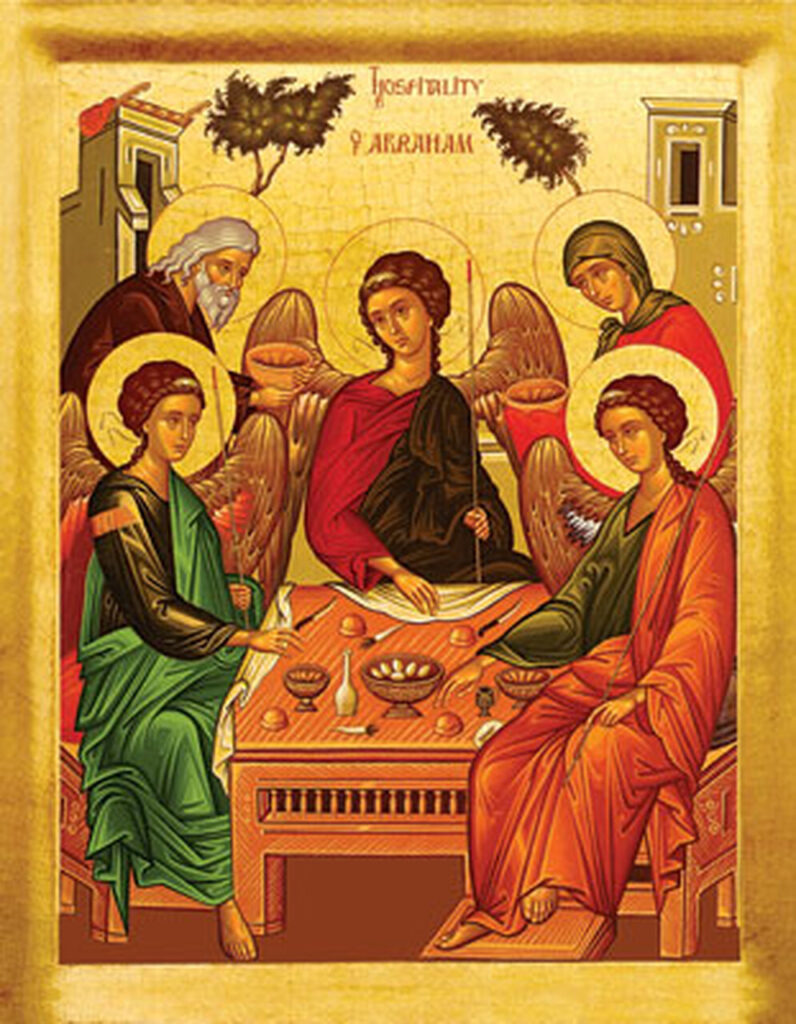In the name of the Father, and of the Son, and of the Holy Spirit, One God, Amen.
“You are good;” says the ruler to the Lord,
vouchsafe me the answer to my question. I am learned in the Old Testament, but I see in you something far more excellent. For you make no earthly promises, but preach the Kingdom of Heaven. Tell me then, what shall I do to inherit eternal life?

This, my brothers and sisters in Christ, should be our question to the Lord, our desire, our longing. The Lord is not a fairy-godmother, offering tricks and trinkets for our earthly life, but the eternal King who offers us immortality. “Therefore I say to you,” the Lord tells us, “do not worry about your life, what you will eat or what you will drink; nor about your body, what you will put on. Is not life more than food and the body more than clothing?” (Matthew 6:25)
We know when we love something or someone we reorder our lives to give as much of our time, energy, talents and money for that thing or that person; but the same is true in reverse—in whatever or whoever we place our time, our energy, our talents and our money we also will grow to love deeply. And we do this in a whole variety of things: in football, in TV, in smart ‘phones, in food, in video games, in addictions—and these begin to take a greater place in our hearts and we grow to love them and define ourselves by them. No longer am I a person in the image of God but I transform myself into the image of technology, or of money, of entertainment, or of greed, or of gluttony, or of malice.
The ruler in today’s Gospel had money. Money is not sinful but the love of money is: were money to be sinful then we should destroy it rather than give it to others. Is your life, dear brothers and sisters in Christ, dependent on money? Is mine? Do we turn to the Lord and say to him,
I have placed something in my heart above thee, O my God,
I will remove it and place my hope and trust only in thee.
And, after making such a prayer, do we take active steps—through our time, our talents, our energy, our prayer, our money—to train ourselves to do the will of God that we may hear the voice of the Lord on the Last Day, “enter, my beloved, into the Kingdom.”
To our loving and merciful Saviour and Judge, Christ our True God, be the glory, together with his unoriginate Father and the All-holy, Good, and Life-giving Spirit, Amen.
Brethren, God who is rich in mercy, out of the great love with which he loved us, even when we were dead through our trespasses, made us alive together with Christ (by grace you have been saved), and raised us up with him, and made us sit with him in the heavenly places in Christ Jesus, that in the coming ages he might show the immeasurable riches of his grace in kindness toward us in Christ Jesus. For by grace you have been saved through faith; and this is not your own doing, it is the gift of God: not because of works, lest any man should boast. For we are his workmanship, created in Christ Jesus for good works, which God prepared beforehand, that we should walk in them.
— Ephesians 2:4–10
At that time, a ruler came to Jesus and asked him, “Good Teacher, what shall I do to inherit eternal life?” And Jesus said to him, “Why do you call me good? No one is good but God alone. You know the commandments: ‘Do not commit adultery, Do not kill, Do not steal, Do not bear false witness, Honor your father and mother.’ ” And he said, “All these I have observed from my youth.” And when Jesus heard it, he said to him, “One thing you still lack. Sell all that you have and distribute it to the poor, and you will have treasure in heaven; and come, follow me.” But when he heard this he became sad, for he was very rich. Jesus looking at him said, “How hard it is for those who have riches to enter the kingdom of God! For it is easier for a camel to go through the eye of a needle than for a rich man to enter the kingdom of God.” Those who heard it said, “Then who can be saved?” But he said, “What is impossible with men is possible with God.
— Luke 18:18–27
